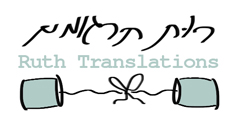Many business try to cut cost where translation is concerned and although cutting costs is generally good business sense, here are seven reasons why in this case, cutting costs by eliminating professional translation services will not save you money:
- Professional translation services are carried out by translators with in-depth knowledge of both the source language and the target language, allowing an overall more accurate translation, both in terms of the literal translation and in terms of the broader meaning of the text.
- A mere familiarity with both languages does not ensure an accurate translation. A translator learns how to read the text meticulously and understand every word and it connotations, every paragraph and its intent and the meaning of the entire text as a whole. Professional translators do no not skim over the surface of the text nor do they see every word on its own. The outcome of professional, quality translation is a text that conveys the original message in the target language in a fluent, natural and organic manner, so that people reading the translation feels as if they are reading a text originally written in their own language.
- Professional translators have the ability to convey the overall message of the text on a literal level without losing the cultural contexts and the nuances unique to each language. For example – finding parallel phrases and idioms in the target language and removing words that are essential to the sentence in the source language but unnecessary in the target language.
- Professional translators have usually spend extended periods of time in countries that speak the languages they translate. Therefore, have an in-depth knowledge of both the target and the source language including the cultural and social connotations attached to the various words and expression. This makes it easier for them to find parallel words and expressions in the target language – even if they are not accurate in the literal sense.
- Good searching and research skills are an inseparable part of the translator’s toolbox. Even though many translators have a wide range of general knowledge and even specialize in certain fields, a good translator needs the ability to search for and find professional terminology and gain a deep understanding of the text. In the case of academic and literary translations, the translator needs to find the sources of translated quotes and while translating material about cutting edge technologies, for example, may even find it necessary to coin new phrases and new terminology in the target language.
- Practice makes perfect – as a result of the experience a professional translator gains in meticulous and in-depth reading and understanding of texts, a professional translator has the means to provide an accurate translation in all respects, whereas the nice, Hebrew speaking neighbor who is quite happy to lend a hand lacks the means to allow the best translation possible.
- And let us not forget the objective of the translation – why is the text being translated and for whom? If the text is a literary text, then it probably has sophisticated, nuance-filled expressions and descriptions meant to convey a certain atmosphere. An inaccurate translation of the intent of the words and in the chosen register are likely to lead to a distortion of the message, or even worse, cause the meaning of the text to be lost in translation. For example, in legal translation, a mistranslation of a word, paragraph, or term is liable to change the meaning of the contract or document in such a way that the translated contract might not be identical to the original contract due to a loose and inaccurate translation. If a catalogue, for example, is not translated accurately, and is presented to the client in erroneous and flawed language, the message will be lost as will the client, who will probably go and see what your competitors have offer.
Ask yourself if you would let a first year medical student perform surgery on you, or would you get on a plane flown by your nephew, who happens to “like planes”? Of course you wouldn’t.
Translation is a profession requiring skill and experience and translators are the people who enable communication between people who lack a common language but have common interests, whether they are business, legal or cultural interests. Give yourself, your business and the messages you would like to convey the respect you deserve and invest in the professional translation you deserve.



